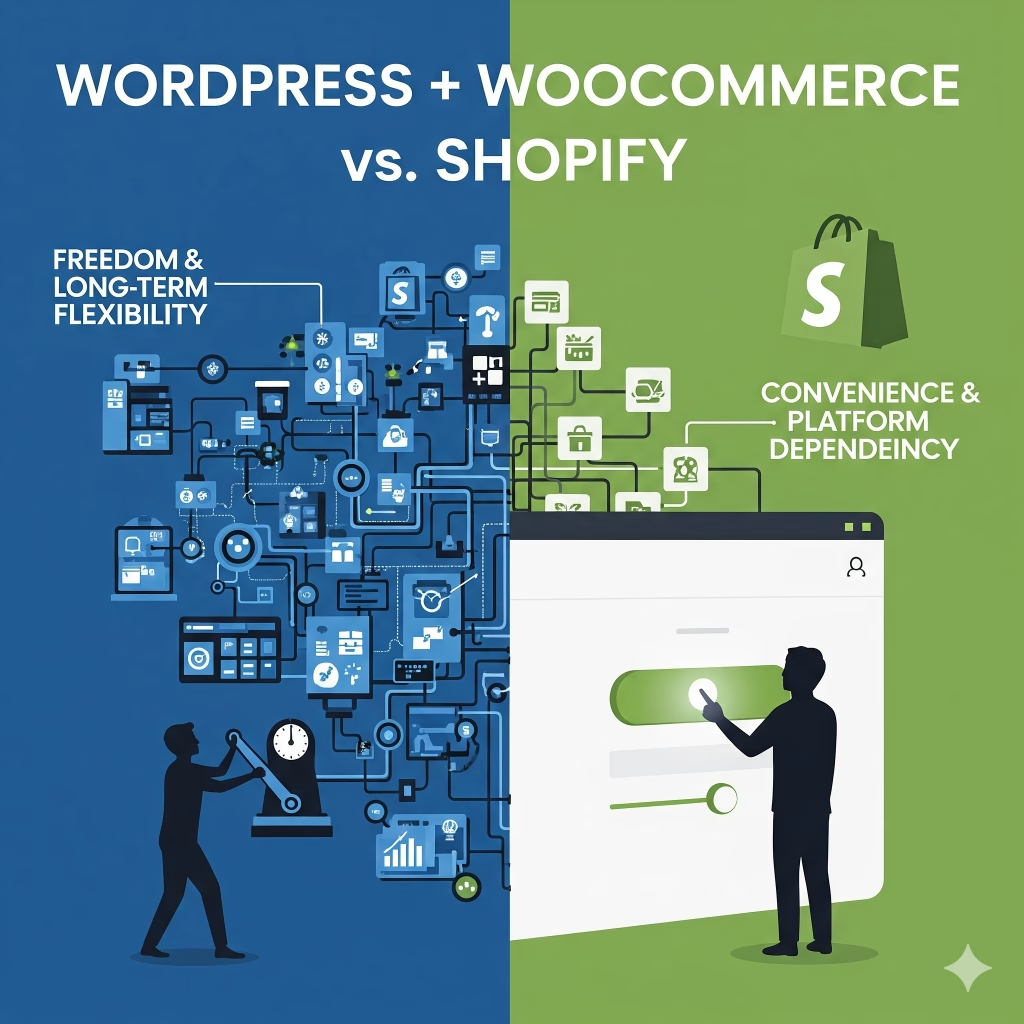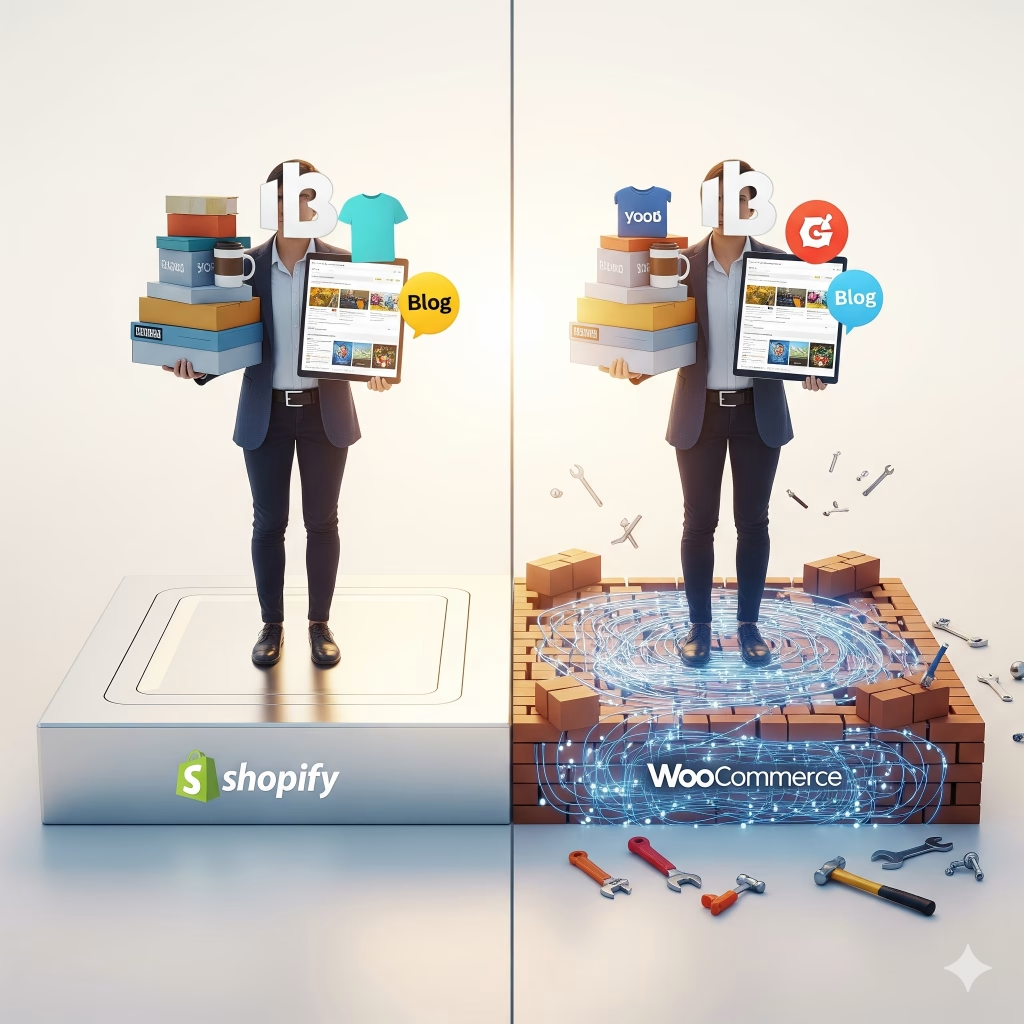
✅ If You Use WordPress + WooCommerce (Self-Hosted):
✔ Full ownership
- You own:
- The store
- The domain
- The files
- The database
- The customer data
- The products and all code
- You can:
- Move to any hosting provider
- Edit all source code
- Export/import anything
- Run your own backups
- Sell it or clone it
🔒 This is true digital ownership — no one can take it away or suspend your store unless you violate your host’s TOS.

⚠️ If You Use Shopify (SaaS Platform):
Partial ownership
- You own your:
- Products
- Content
- Customer list
- But Shopify controls:
- The hosting and infrastructure
- Access to the admin panel
- What apps you can install
- Whether your store stays online
💬 Example: Shopify can suspend your store for payment disputes, policy violations, or if you stop paying their monthly fee.
📌 Summary Comparison
| Ownership | WooCom. | Shopify |
|---|---|---|
| Domain | ✅ Yours | ✅ Yours |
| Hosting | ✅ Yours | ❌ Shopify |
| Source Code | ✅ 100% | ❌ No access |
| App/Plugin Freedom | ✅ Unlimited | ⚠️ App Store |
| Risk | ✅ Very low | ❌ |
| Monthly Fee | ❌ | ✅ $39 |
✅ Final Verdict:
If you want real ownership, freedom, and long-term flexibility, WordPress + WooCommerce is the better choice.
If you want convenience and are okay with platform dependency, Shopify is a solid option.
MORE LINKS:
E-commerce store
Sell digital products
Integrate payment gateways
Manage inventory
Manage bookings
Cart recovery
Shopify vs Woocommerce
Tax & shipping zones
Discount coupons
DO I OWN MY E-COMMERCE STORE
Yes, you do own your store, but the level of control you have over it depends heavily on the platform you choose. Ownership means you control your products, content, branding, and customer relationships but the platform determines how much freedom you have to customize, move, or manage technical details. Choosing the right foundation is important for how much flexibility you’ll have now and as your business grows.
With platforms like WooCommerce on WordPress, you have full ownership and control. You manage your own hosting, files, database, and code. This gives you complete access to modify anything, integrate third-party tools, and even migrate your entire store to another provider if needed. It’s a great choice if you want total freedom to shape your store exactly the way you want and make changes on your own terms.

Shopify, while incredibly convenient and reliable, is more limited in terms of access. It’s a hosted platform, which means your store lives on their servers and follows their rules. You can’t access the underlying infrastructure, and some customizations are only possible through apps or approved methods. That said, Shopify still allows you to own your brand, your content, and your data it just wraps those assets in a more managed environment.

So while you always own your business and store content, the platform shapes how deeply you can control its structure and features. If you prioritize independence and customization, self-hosted platforms like WooCommerce give you the tools to take full control.

If you prefer ease of use and lower maintenance, Shopify gives you ownership with guardrails. The best choice depends on how hands-on you want to be with your store’s future.


